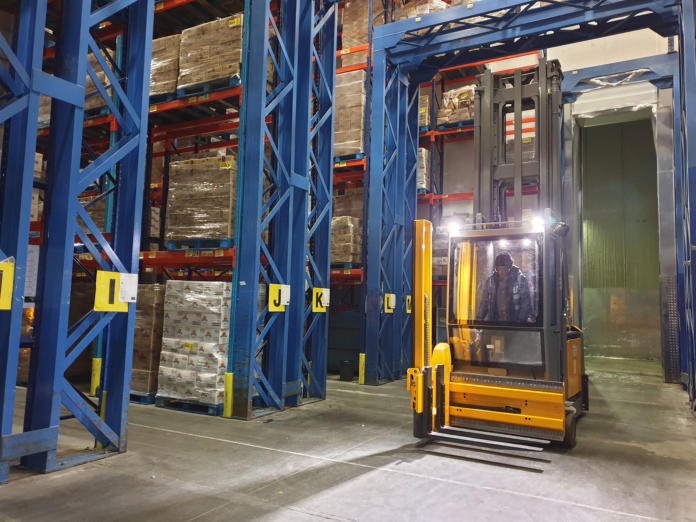WIDELY regarded as the pioneers of using lithium ion batteries in materials handling lift trucks, Jungheinrich, have overcome the problems associated with using Li-ion powered lift trucks in cold stores, at temperatures of -25⁰C and South Africa can expect this state of the art technology to arrive in Q4 2021.
The company began the introduction of li-ion batteries across its product range in 2010 amid much derision from competitors wedded to lead acid batteries. The much improved performance and advantages of li-ion powered machines soon had competitors developing their own lithium-ion powered machines, or retrofitting their own units with outsourced li-ion batteries
While all types of batteries show performance declines in cold temperature situations, Li-ion batteries capacity only declines by 10% at 0⁰C compared with 50% for the lead acid equivalent. Furthermore, lower temperatures experienced in typical cold stores can cause the electrolyte in lead acid batteries to freeze and crack the battery casing in prolonged usage in cold store environment.
The advantages of li-ion over lead acid batteries in lift truck applications, is well documented and includes:
- Lower mass
- Greater energy density provides extended shift times
- Lower charging times – typically 80 minutes from almost flat – full
- No electrolyte therefore no leakage problems, no dangerous gassing or freezing.
- Longer working life – Jungheinrich guarantee its batteries for five years suggesting replacement only after eight.
These advantages contribute to increased productivity, factory space saving as no battery bays are required as battery swapping is obsolete – li-ion powered trucks can complete up to three shifts with only 15 minutes charge intervals , from anywhere in the plant. In sub-zero conditions Jungheinrich’s two shifts one charge battery operated forklift is ideal for longer shift hours. Flexible charging options are the key to productive cold store operations, whether changing takes place inside an ambient environment or outside.
This means that all trucks in this range whether manual, semi-automatic or fully automatic machines can perform successfully in low temperatures, in all racking configurations.
Jungheinrich engineers have been perfecting the technology since its inception and have overcome low temperature battery issues allowing its new EKX range of VNA (very narrow aisle) machines to perform at temperatures as low as -28⁰C – which covers virtually all cold store applications.
Low temperature operation machines include specially designed features including special steel construction, anti-stick-slip additives, low viscosity oils and purpose designed pumps, tanks and hydraulic equipment to cater for the environment. Operators are not forgotten either with cabin heaters and windscreen and window de-misters.
Compared with conventional reach trucks the EKX machines are much narrower between 1 750mm and 2 100mm compared to 3m for a reach truck allowing greater storage density especially if specified with a 12,5m Stack and Retrieval capability
The new EKX Cold Store stacker when paired with optional warehouse navigation technology delivers the added benefit of sub-zero temperature protection when operating in cold storage facilities. Once integrated with Jungheinrich’s RFID transponder technology, the EKX Cold Store navigates a storage facility with enhanced efficiency, directing the stacker to individual pallet locations with pinpoint accuracy. The management system relays all transport and picking orders directly to the truck terminal via radio data. This allows the truck to identify new target locations based on X, Y and Z coordinates and then helps it navigate to the new rack locations semi-automatically. Once the driver confirms the operation, the cabin’s display indicates travel and lift directions as the truck approaches the correct position automatically, with millimetre precision.
- For more information, contact Jungheinrich Tel: 010 596 8460 of Email: Chad Short, National Sales Manager , chad.short@junheinrich.co.za
